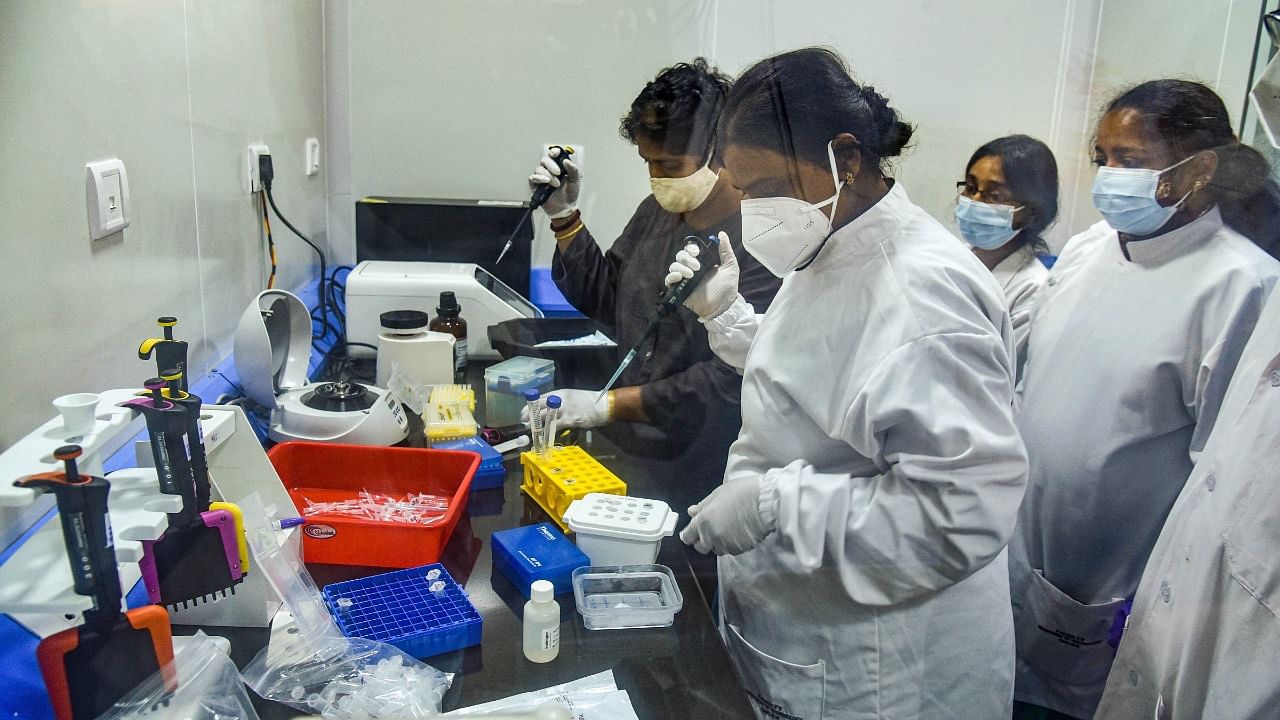
India’s Omicron count crossed 200 on Tuesday amid expectations among medical experts that the country’s shrinking Covid-19 epidemic will reverse and slip into an Omicron-driven rise, even as the Union Health Ministry asked districts to watch local epidemic trends.
The ministry on Tuesday directed the district administrations to impose “containment measures and restrictions” if the test positivity rate in an area has gone up to 10 per cent or more over the past week.
Similar restrictions would fall into place when the occupancy of ICU or oxygen supported beds cross the 40 per cent mark, Union Health Secretary Rajesh Bhushan wrote in his letter to the states.
“Based on the current scientific evidence, the Omicron variant (of SARS-CoV-2) is at least three times more transmissible than the Delta variant. Besides, Delta is still present in different parts of the country. Greater foresight, data analysis, dynamic decision making and strict and prompt containment action is required at the local and district level,” Bhushan wrote in his letter.
The fresh warning from the Centre comes at a time when doctors and medical researchers said the number of Omicron cases would increase as local transmission of the highly infectious variant would overtake the infections detected at airports.
"There is no reason to believe what has been seen in other countries will not happen in India. The number will increase fast and doubling days will reduce. Since Omicron is highly transmissible, there will be a significant number of reinfection and breakthrough infection cases,” Sandeep Budhiraja, Group Medical Director, Max Healthcare and one of the advisors to the Delhi government on Covid-19, told DH.
“A rise in cases due to Omicron coming soon is highly likely. It is best to prepare for the worst,” said Anurag Agarwal, Director of CSIR’s Institute for Genomics and Integrative Biology, Delhi, one of the INSACOG laboratories sequencing the SARS-CoV-2 variants.
Of the 200 Omicron cases recorded till early Tuesday, Maharashtra and Delhi reported 54 each, followed by Telangana (20), Karnataka (19) and Rajasthan (18). Kerala and Gujarat are the two other states with double-digit Omicron figures. Although the majority of the patients are international travellers, there are a few local cases without any established travel link.
“The local transmission might have been established in some parts, suggested by reported cases without any obvious links to travel,” said epidemiologist Giridhara Babu at the Public Health Foundation of India, Bengaluru.
“We should start seeing a rise in cases by January. There's some evidence for community transmission already and we have travel links to the countries which are reporting a sudden rise in cases, such as the USA, the UK and South Africa. There's no reason to believe that, given what we know of the experience of other countries, something similar should not happen here,” said Gautam Menon, a professor of physics and biology at the Institute of Mathematical Sciences, Chennai and Ashoka University, who is closely tracking the pandemic.
Asked whether a rise in Covid-19 cases would mean increased hospitalisation, Budhiraja said, “South African data shows that during the peak of the Delta outbreak, 19 per cent of the patients were hospitalised whereas during the Omicron peak, 1.8 per cent was hospitalised.”
“But even in such a scenario in India, there would be too many people requiring hospitals in a short span of time. So hospitals should be fully prepared,” he said.
Watch the latest DH Videos here:
